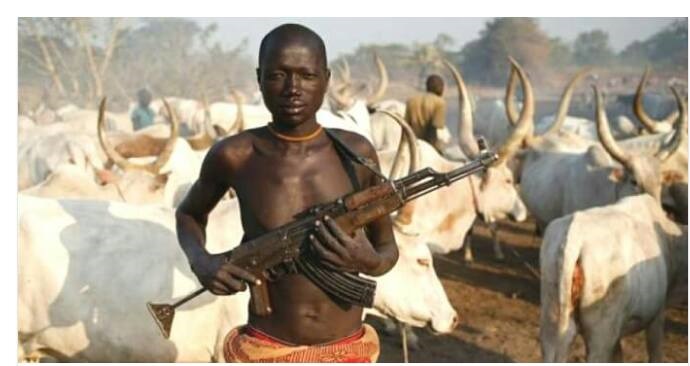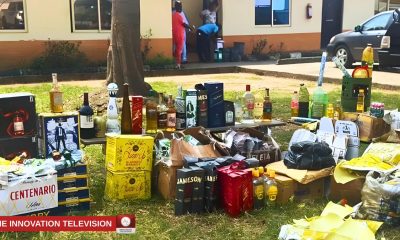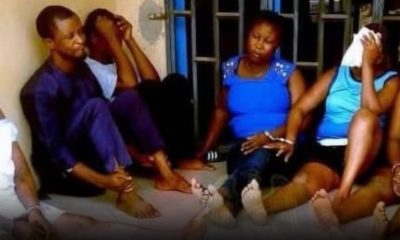Comments and Issues
Killer Fulani Herdsmen may soon become indigenes of Abia, Anambra, Delta and other Southern states
Published
4 years agoon
By
Olu Emmanuel
- Call your representatives in the National Assembly to prevent this
- Why South, Middle-Belt Must Reject NASS’ New Indigenisation Law
By Gboyega Adejumo
Under the guise of bustling and busy legislative rush hour in matters of indigenisation, the hidden currents are extremely dangerous to the southern and the Middle-Belt zones. We, the Yorùbá, have realised that in all walks of life, all ethnicities in this space called Nigeria have their own highest standards of distinctive cultural and patrimonial pursuits. This was the very reason our founding fathers, Chief Obafemi Awolowo, Dr. Nnamdi Azikiwe and Sir Ahmadu Bello agreed on the formation of a federalist state with distinct culturally demarcated regions. The wisdom in maintaining the culture and traditions of each ethnicity must therefore be sacrosanct for peace to reign. On the basis of this comprehension and erudition, the Federal Republic of Nigeria was formed.
For a different manifesto to be crafted, different from the foundation laid by the founding fathers in the manner of indigenisation, the Yorùbá warn, such will pose a threat to the survival of the Nigerian state and we therefore call for the entire peoples of the southern zones and the Middle-Belt zone, to jointly harness all their efforts to address and contain the recent attempt by the National Assembly under the guise of amending the Constitution, to surreptitiously insert into the Constitution a dangerous anti-cultural indigenisation provision that will make non-indigenes attain an arduous, laborious status of an indigene after a habitation period of five years. We of the Yorùbá are speaking out on this occasion as the natural custodians of the Yorùbá interest, the “nurturer” of the future of our race, undiluted, whose continued existence is in doubt as the forced occupation of our villages, the pillaging of our farms, the killings, maiming, raping of our women by foreigners, are not only a rude and crude invasion and destruction of our land and culture—-to now add to all these insults, that such criminals who forcefully drive away our people to occupy our land to then be granted indigenous statuses, is a slap on our faces gone too far.
All other ethnicities in the other southern zones and equally in the Middle-Belt zone have suffered from these usurpers under the guise of herdsmen, and from citizens and indigenes of other countries termed foreign Fulani. All are in peril and, if the peril is understood, this press statement stands as a clarion call to all indigenous ethnicities of the southern and Middle-Belt zones to collectively reject the so-called constitutional amendment that in all its intents and purposes seek to enslave us all. Once this repulsive and offensive amendment is done, there will be no hope that our future as the proud, illustrious and industrious Yoruba, our centuries-old heritage, culture, brand and renowned history worldwide, will ever again remain the same.
This situation reminds us of a parallel in history. In the book, “The destruction of Black civilization: Great issues of a race from 4500 B.C. to 2000 A.D.” by Chancellor Williams, we read: “The young traveler asked the old man, “What happened to the Black people of Sumer? For ancient records have it that the people of Sumer were Blacks. What happened to them?”” “Aaaaahhhhh!!!!” sighed the Old man, “They lost their history, and they died.” It is our collective resolve, therefore, that the Yorùbá race must do all that is possible within our intellection to avert the situation that happened to the people of Sumer. Such a fate is unthinkable and must be averted at all cost. I have arrived at this auspicious juncture to, therefore, address this treatise to all our governors in the South-West, to all our parliamentarians in the lower and upper houses, to the Aláàfin of Ọ̀yọ́, the Àrólé Oòduà, Ọòni of Ilé-Ifẹ̀; Ààrẹ Ọ̀nà Kakaǹfò of Yorùbáland, Iba Gani Abiodun Ige Adams, to notable Yorùbá figures, Professor Wọlé Ṣóyinká, Ààrẹ Afẹ́ Babalọlá… We all have to speak out in a common voice. Here, then, is the existential threat which we present to you, stark and dreadful and inescapable, if we should allow such an amendment to stay: shall we put an end to the Yorùbá race or shall we collectively maintain our dignity?
Our people should not be left to their devices alone to face this offensive, insensitive amendment and instrument of coercion because it will be so difficult to abolish once it becomes law and war may ensue. As it stands today, hundreds of our villages have been forcefully taken over by foreigners. The proponents of the amendment scarcely realise in their imagination that the danger is to themselves and to others if this amendment goes through. In the avoidance of a long term conflict capable of disrupting and destroying their children and our children, their grandchildren, and our grandchildren and not only to a dimly apprehended Nigeria that is so fragile already, this exercise must be stopped! The proponents of this amendment can scarcely bring themselves to grasp that they, individually, and those whom they serve are in imminent danger of creating a potential desecration of this country. And so they hope that perhaps forceful acquisition of indigenous lands for other less worthy, will subdue the will of the indigenous people to proudly defend their lands? This hope of the proponents of this amendment is illusory.
There lies a choice before the people, if we are to choose continual progress in happiness, and wisdom. Or another choice in the opposite direction: to choose injustice, iniquity, inequality. Surely, the Yorùbá will not and cannot forget the quest to grab their lands through the disingenuous and discredited RUGA! We of the Yorùbá appeal as human beings to human beings: remember your humanity, and forget the rest. If you can do so, the way lies open to a new paradise that Nigerians, if so determined, can create; if they cannot, there lies before the proponent of this obnoxious, vexatious amendment, the risk of national disenchantment, conflicts and irreparable ethnic wars. For it is written, “One cannot violate the promptings of one›s nature without having that nature recoil upon itself.”
Mogaji Adejumo is a chieftain of Afenifere
Trending

 Health1 week ago
Health1 week agoFOI data show thousands of heart failures reports linked to AstraZeneca COVID-19 vaccine

 News1 week ago
News1 week agoTinubu approves purchase of 2 new satellites to strengthen Nigeria’s digital infrastructure

 Trends2 days ago
Trends2 days agoTonto Dikeh reunites son with Churchill after decade-long split

 Latest23 hours ago
Latest23 hours agoYoruba film industry mourns as popular actress aunty Ajara passes away

 Health1 week ago
Health1 week agoInvestigation uncovers industrial-scale counterfeit hub in Lagos’ Ojo Barracks

 Business1 week ago
Business1 week agoDeeper issues behind Nigeria’s repeated grid collapses —Experts

 Crime7 days ago
Crime7 days agoUK Court hears digital, financial evidence in Diezani Alison-Madueke corruption trial

 Crime1 week ago
Crime1 week agoArmy busts human trafficking ring, rescues day-old baby listed for ₦3m

